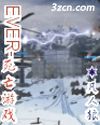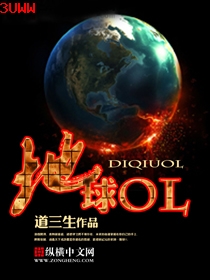evolution and ethics and other essays-第3部分
按键盘上方向键 ← 或 → 可快速上下翻页,按键盘上的 Enter 键可回到本书目录页,按键盘上方向键 ↑ 可回到本页顶部!
————未阅读完?加入书签已便下次继续阅读!
expression of a fixed order; every stage of which is the effect of
causes operating according to definite rules; the conception of
evolution no less excludes that of chance。 It is very desirable to
remember that evolution is not an explanation of the cosmic process;
but merely a generalized statement of the method and results of that
process。 And; further; that; if there is proof that the cosmic process
was set going by any agent; then that agent will be; the creator of it
and of all its products; although supernatural intervention may remain
strictly excluded from its further course。
So far as that limited revelation of the nature of things; which we
call scientific knowledge; has '7' yet gone; it tends; with constantly
increasing emphasis; to the belief that; not merely the world of
plants; but that of animals; not merely living things; but the whole
fabric of the earth; not merely our planet; but the whole solar
system; not merely our star and its satellites; but the millions of
similar bodies which bear witness to the order which pervades
boundless space; and has endured through boundless time; are all
working out their predestined courses of evolution。
* See 〃Evolution in Biology;〃 Essays; vol。 ii。 p。 187
With none of these have I anything to do; at present; except with that
exhibited by the forms of life which tenant the earth。 All plants and
animals exhibit the tendency to vary; the causes of which have yet to
be ascertained; it is the tendency of the conditions of life; at any
given time; while favouring the existence of the variations best
adapted to them; to oppose that of the rest and thus to exercise
selection; and all living things tend to multiply without limit; while
the means of support are limited; the obvious cause of which is the
production of offspring more numerous than their progenitors; but with
equal expectation of life in the actuarial sense。 Without the first
tendency there could be no evolution。 Without the second; there would
be no good reason why one variation should disappear and another take
its place; that is to say there would be no selection。 Without the '8'
third; the struggle for existence; the agent of the selective process
in the state of nature; would vanish。*
* Collected Essays; vol。 ii。 passim。
Granting the existence of these tendencies; all the known facts of the
history of plants and of animals may be brought into rational
correlation。 And this is more than can be said for any other
hypothesis that I know of。 Such hypotheses; for example; as that of
the existence of a primitive; orderless chaos; of a passive and
sluggish eternal matter moulded; with but partial success; by
archetypal ideas; of a brand…new world…stuff suddenly created and
swiftly shaped by a supernatural power; receive no encouragement; but
the contrary; from our present knowledge。 That our earth may once have
formed part of a nebulous cosmic magma is certainly possible; indeed
seems highly probable; but there is no reason to doubt that order
reigned there; as completely as amidst what we regard as the most
finished works of nature or of man。** The faith which is born of
knowledge; finds its object in an eternal order; bringing forth
ceaseless change; through endless time; in endless space; the
manifestations of the cosmic energy alternating between phases of
potentiality and phases of explication。 It may be that; as Kant
suggests;*** every cosmic '9' magma predestined to evolve into a new
world; has been the no less predestined end of a vanished predecessor。
**Ibid。; vol。 iv。 p。 138; vol。 v。 pp。 71…73。
***Ibid。; vol。 viii。 p。 321。
II。
Three or four years have elapsed since the state of nature; to which I
have referred; was brought to an end; so far as a small patch of the
soil is concerned; by the intervention of man。 The patch was cut off
from the rest by a wall; within the area thus protected; the native
vegetation was; as far as possible; extirpated; while a colony of
strange plants was imported and set down in its place。 In short; it
was made into a garden。 At the present time; this artificially treated
area presents an aspect extraordinarily different from that of so much
of the land as remains in the state of nature; outside the wall。
Trees; shrubs; and herbs; many of them appertaining to the state of
nature of remote parts of the globe; abound and flourish。 Moreover;
considerable quantities of vegetables; fruits; and flowers are
produced; of kinds which neither now exist; nor have ever existed;
except under conditions such as obtain in the garden; and which;
therefore; are as much works of the art of man as the frames and
glasshouses in which some of them are raised。 That the 〃state of Art;〃
thus created in the state of nature by man; is sustained by and
dependent on him; would at once become '10' apparent; if the watchful
supervision of the gardener were withdrawn; and the antagonistic
influences of the general cosmic process were no longer sedulously
warded off; or counteracted。 The walls and gates would decay;
quadrupedal and bipedal intruders would devour and tread down the
useful and beautiful plants; birds; insects; blight; and mildew would
work their will; the seeds of the native plants; carried by winds or
other agencies; would immigrate; and in virtue of their long…earned
special adaptation to the local conditions; these despised native
weeds would soon choke their choice exotic rivals。 A century or two
hence; little beyond the foundations of the wall and of the houses and
frames would be left; in evidence of the victory of the cosmic powers
at work in the state of nature; over the temporary obstacles to their
supremacy; set up by the art of the horticulturist。
It will be admitted that the garden is as much a work of art;* or
artifice; as anything that can be mentioned。 The energy localised in
certain human bodies; directed by similarly localised intellects; has
produced a collocation of other material bodies which could not be
brought about in the state of nature。 The same proposition is true of
all the
* The sense of the term 〃Art〃 is becoming narrowed; 〃work of
Art〃 to most people means a picture; a statue; or a piece of
bijouterie; by way of compensation 〃artist〃 has included in its
wide embrace cooks and ballet girls; no less than painters and
sculptors;
'11' works of man's hands; from a flint implement to a cathedral or a
chronometer; and it is because it is true; that we call these things
artificial; term them works of art; or artifice; by way of
distinguishing them from the products of the cosmic process; working
outside man; which we call natural; or works of nature。 The
distinction thus drawn between the works of nature and those of man;
is universally recognized; and it is; as I conceive; both useful and
justifiable。
III。
No doubt; it may be properly urged that the operation of human energy
and intelligence; which has brought into existence and maintains the
garden; by what I have called 〃the horticultural process;〃 is;
strictly speaking; part and parcel of the cosmic process。 And no one
could more readily agree to that proposition than I。 In fact; I do not
know that any one has taken more pains than I have; during the last
thirty years; to insist upon the doctrine; so much reviled in the
early part of that period; that man; physical; intellectual; and
moral; is as much a part of nature; as purely a product of the cosmic
process; as the humblest weed。*
* See 〃Man's Place in Nature;〃 Collected Essays; vol。 vii。; and
〃On the Struggle for Existence in Human Society〃 (1888); below。
But if; following up this admission; it is urged '12' that; such being
the case; the cosmic process cannot be in antagonism with that
horticultural process which is part of itselfI can only reply; that
if the conclusion that the two are; antagonistic is logically absurd;
I am sorry for logic; because; as we have seen; the fact is so。 The
garden is in the same position as every other work of man's art; it is
a result of the cosmic process working through and by human energy and
intelligence; and; as is the case with every other artificial thing
set up in the state of nature; the influences of the latter; are
constantly tending to break it down and destroy it。 No doubt; the
Forth bridge and an ironclad in the offing; are; in ultimate resort;
products of the cosmic process; as much so as the river which flows
under the one; or the seawater on which the other floats。
Nevertheless; every breeze strains the bridge a little; every tide
does something to weaken its foundations; every change of temperature
alters the adjustment of its parts; produces friction and consequent
wear and tear。 From time to time; the bridge must be repaired; just
as the ironclad must go into dock; simply because nature is always
tending to reclaim that which her child; man; has borrowed from her
and has arranged in combinations which are not those favoured by the
general cosmic process。
Thus; it is not only true that the cosmic energy; working through man
upon a portion of '13' the plant world; opposes the same energy as it
works through the state of nature; but a similar antagonism is
everywhere manifest between the artificial and the natural。 Even in
the state of nature itself; what is the struggle for existence but the
antagonism of the results of the cosmic process in the region of life;
one to another?*
* Or to put the case still more simply。 When a man lays hold of
the two ends of a piece of string and pulls them; with intent
to break it; the right arm is certainly exerted in antagonism
to the left arm; yet both arms derive their energy from the
same original source。
IV。
Not only is the state of nature hostile to the state of art of the
garden; but the principle of the horticultural process; by which the
latter is created and maintained; is antithetic to that of the cosmic
process。 The characteristic feature of the latter is the intense and
unceasing competition of the struggle for existence。 The
characteristic of the former is the elim


![[网王同人]colorless wind封面](http://www.baxi2.com/cover/noimg.jpg)




